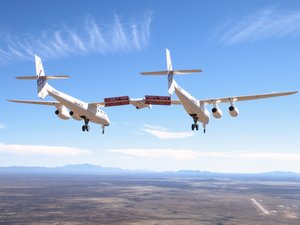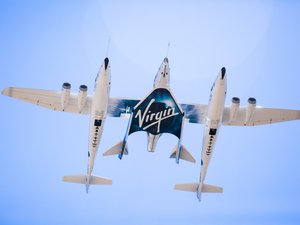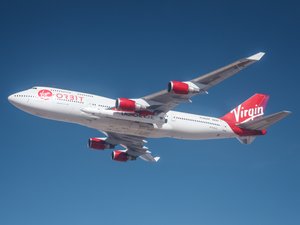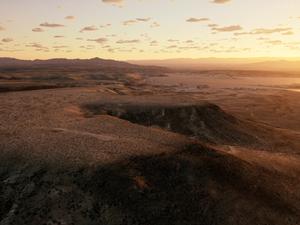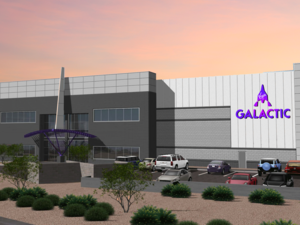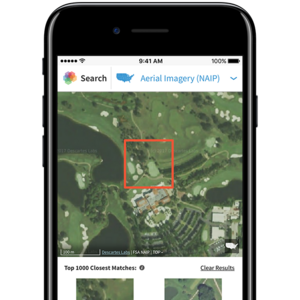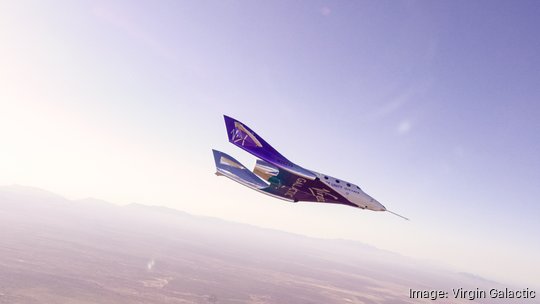
A Virgin Galactic spacecraft could be seen gliding through Southern New Mexico skies on Wednesday morning for the first time in nearly two years.
The space tourism company completed a test flight of its VSS Unity aircraft from Spaceport America, the approximately 18,000-acre commercial spaceport near Truth or Consequences. It was one of Virgin Galactic's final flights before it begins commercial service, which is set for the second quarter of this year.
Wednesday's test was a "glide flight." The Unity ship was dropped from the pylon of Virgin's suborbital "mothership," VMS Eve, before coasting unpowered to land back at the Spaceport from an altitude of 47,000 feet.
"The ability to conduct glide flights — allowing us to gain critical performance metrics without the need for rocket-power — is one of the benefits of our distinctive flight system," Mike Moses, Virgin Galactic's president of spaceline missions and safety, said in a statement. "The data from this validation flight will clear the way for our return to space and, ultimately, lead to the launch of commercial service."
Virgin Galactic's next mission will be a rocket-powered spaceflight carrying two pilots and four "mission specialists" in order to assess the customer experience and ground-based training, according to an April 26 news release from the company. Two pilots controlled VSS Unity during today's glide flight and two other pilots controlled VMS Eve.
Eve flew from Mojave, California, to Spaceport America in mid-February, the first time the ship had flown since October 2021. It underwent a series of mechanical alterations in California, including upgrades to its central pylon that holds the Unity glide-ship before its release.
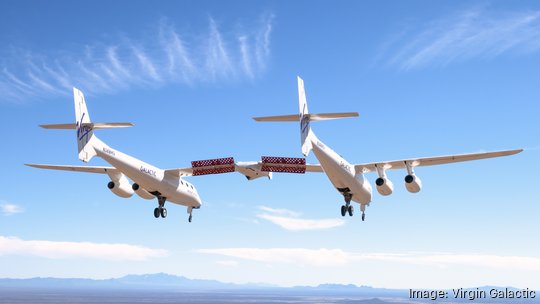
The company expects a cadence of one flight per month as its final testing and commercial service ramps up, Michael Colglazier, Virgin Galactic's CEO, said in a February earnings call. He added on the call that the series of test flights, including Wednesday's glide flight and the planned rocket-powered spaceflight, are designed to validate the performance of VMS Eve and VSS Unity.
A research flight with a crew from the Italian Air Force is the first flight planned as part of the company's commercial service. That Italian Air Force flight was delayed in late 2021 after it was scheduled for November of that year.
Delays aren't new to Virgin Galactic. The company originally predicted beginning commercial service in the fourth quarter of 2022 before last May pushing that timeframe back to the first quarter of this year.
Virgin Galatic has now stuck with its expected time frame of the second quarter of 2023 for commencing commercial service, noting in its Wednesday release that "today's successful glide flight closes out the final validation test points, in addition to data gathered in a mated configuration flight last week."
Shares of Virgin Galactic Holdings Inc. (NYSE: SPCE) stock sat at $3.28 at the time of publishing. It's stock opened Wednesday at a price of $3.26, per MarketWatch data. It's trended downward following a three-month high point of $6.54, hit on Feb. 2.
Virgin Orbit, a satellite launch provider and separate company that split from Virgin Galactic in 2017, cut the majority of its workforce in late March and filed for bankruptcy on April 4. Virgin Orbit's operations have no effect on Virgin Galactic, a communications specialist for the space tourism company confirmed to Business First in March.
